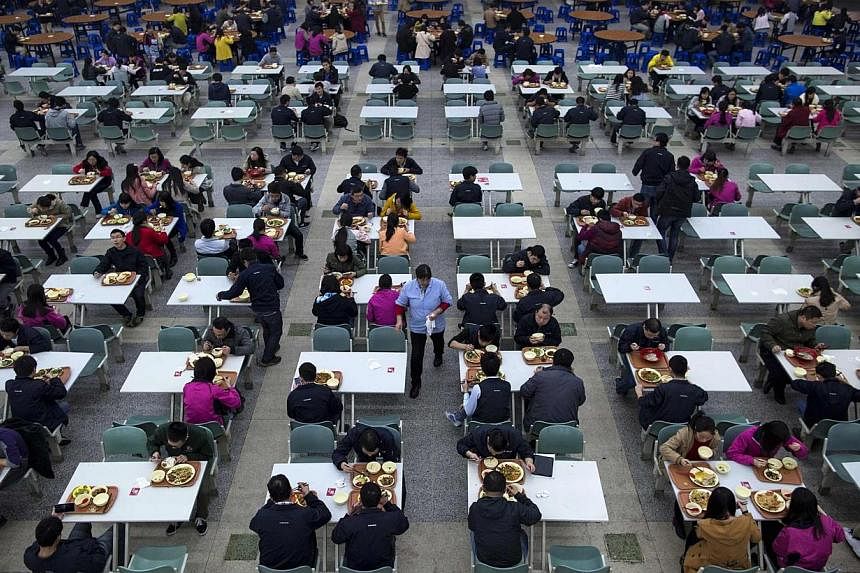SHENZHEN, China (REUTERS) - Taiwan's Foxconn Technology Group, the world's largest contract electronics manufacturer, says it has stabilised its workforce after a recent spate of worker suicides.
It also seemed to indicate to Reuters, when asked about the slimming of its massive workforce, that it may be on the cards, as the Apple supplier faces declining revenue growth and rising wages in China.
"We've basically stabilised (our workforce) in the last three years," special assistant to the chairman and group spokesman Louis Woo said. When asked if the company plans to reduce overall headcount, he responded "yes".
Mr Woo did not specify a timeframe or target for the reduction, but noted that labour costs had more than doubled since 2010, when the company faced intense media scrutiny following the worker suicides.
"It depends how successful we are in terms of introducing the process automation and also the robotics," he said.
Hon Hai said later it would maintain its employee count at more than a million worldwide but would "decrease the magnitude of our hiring in the coming years". There are no immediate plans for reducing staff, it said.
Under its flagship unit Hon Hai Precision Industry Co Ltd, the group currently employs about 1.3 million people during peak production times, making it one of the largest private employers in the world.
Revenue growth at the conglomerate tumbled to 1.3 per cent in 2013 and only partially recovered to 6.5 per cent last year after a long string of double-digit increases from 2003 to 2012.
That decade saw the firm ride an explosion of popularity in PCs, smartphones and tablets, largely driven by its main client Apple, but now it is feeling the effects of falling growth and prices in the gadget markets it supplies, a trend that is expected to continue.
Growth in smartphone sales will halve this year from 26 per cent in 2014, according to researcher IDC, while PC sales will contract by 3 per cent.
Similarly, the average smartphone will sell for 19 per cent less in 2018 than last year's US$297 (S$399). "Even if technology is improving, the price will still come down," Mr Woo said. "We've come to accept that, our customers have come to accept that."
Automation will be key to keeping labour costs under control in the long-term, he said, as the company pushes to have robotic arms complete mundane tasks currently done by workers.
But Mr Woo noted that company chairman Terry Gou's previously stated goal of one million robots was "a generic concept" rather than a firm target.

